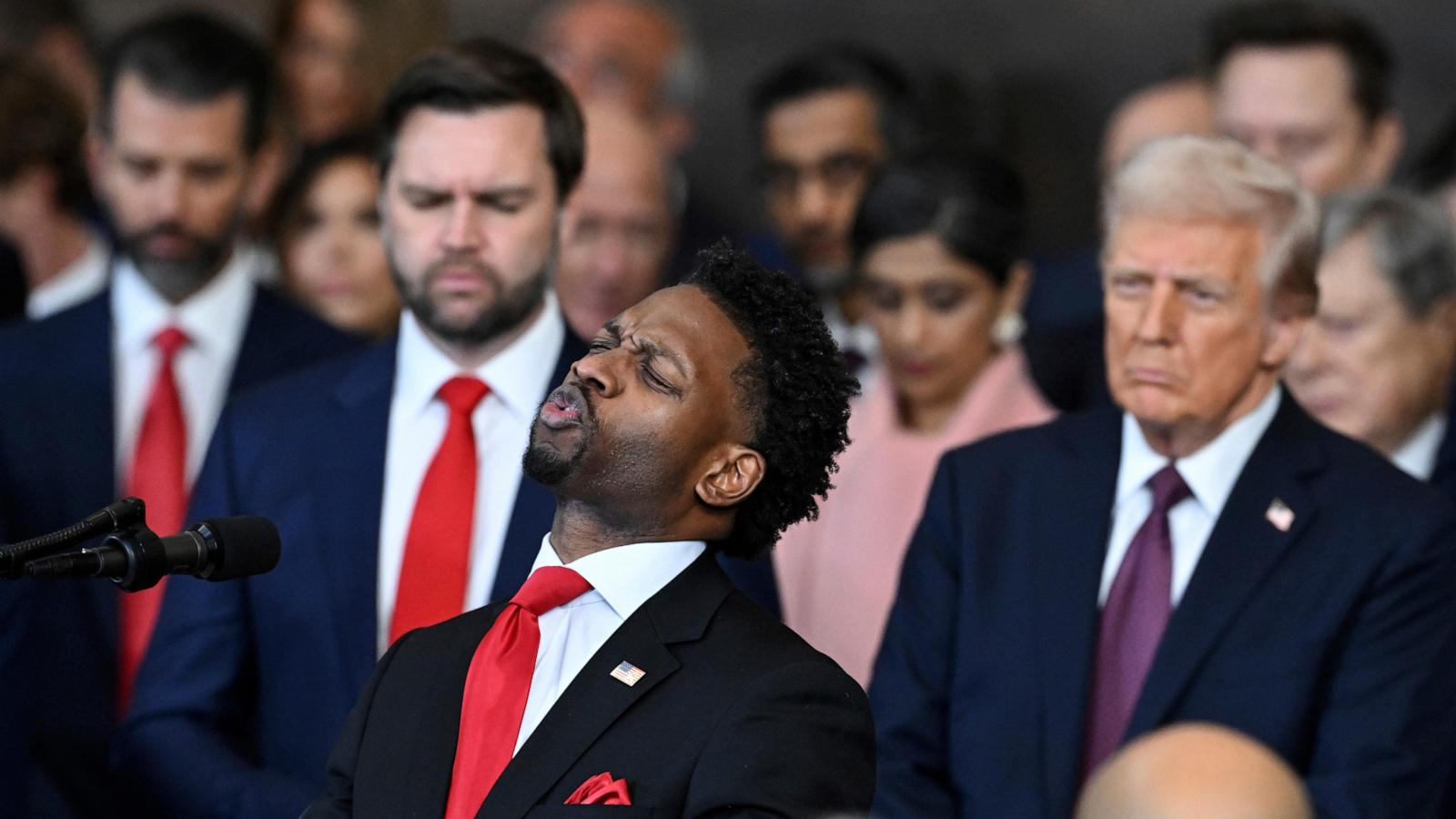Martin Luther King Jr. Day Inauguration: A Controversial Benediction and Divided Reactions
President Trump's second inauguration, coinciding with Martin Luther King Jr. Day, sparked controversy with Rev. Lorenzo Sewell's benediction. Sewell's prayer, heavily incorporating King's famous "I Have a Dream" speech, was praised by some but criticized by others for its context and timing. This unexpected juxtaposition ignited a national conversation about the intersection of faith, politics, and the legacy of a civil rights icon. The event became a flashpoint, dividing opinions and raising questions about the appropriate tone and message for such a significant occasion. Did Sewell's prayer truly honor King's dream, or was it a hijacking of a sacred moment? Let's delve into the details and explore the differing perspectives.
A Prayer for the President: Rev. Sewell's Benediction
Rev. Lorenzo Sewell's benediction was a fiery, impassioned prayer. Drawing heavily from King's rhetoric and laced with patriotic fervor, Sewell's words echoed through the halls of power. His inclusion of phrases like "let freedom ring" and "free at last" resonated with those who view such language as timeless and universally applicable, irrespective of political affiliation. His prayer thanked God for the Trump administration, and he even alluded to the attempt on Trump's life as a "millimeter miracle." The seemingly near complete rendition of parts of King's 1963 speech provided a backdrop to a powerful spiritual outpouring that captured national attention.
The Controversy and Reactions
However, Sewell's fervent prayer wasn't without its critics. Many felt it was inappropriately celebratory for a leader perceived as divisive and at odds with the values that King so prominently championed. Many black faith leaders criticized the appropriation of King's words, emphasizing King's fight for economic justice, and the juxtaposition of celebrating him while supporting Trump’s policies directly contradictory to his work felt hypocritical. Others raised questions about the overall appropriateness of a largely political prayer in a religious context. Some criticized Sewell's fervent political alignment as undermining the sanctity of the spiritual aspect of his oration. Some argue such clear partisanship turned it into a tool of political messaging, far removed from a sacred moment of prayer, raising debate about where religious devotion ends and political activism begins.
King's Legacy: A Divisive Interpretation?
The juxtaposition of the Trump inauguration and MLK Day itself fueled considerable debate. Civil rights leaders and King's family voiced their unease. For many, the perceived discrepancy between Trump’s politics and King's legacy created a jarring dissonance that couldn't easily be ignored. Was the speech reflective of true commemoration, or an attempt to co-opt King's messaging for political purposes? Many people believe that Rev. Sewell’s prayer misappropriated King's words, potentially diluting the profound significance of King's advocacy for social and economic equality for black communities and others. Rev. Al Sharpton directly addressed this controversy. Many felt Sewell's prayer attempted to harness the power and respect associated with Martin Luther King Jr.'s powerful words for narrow political gain, potentially undermining the true impact of King's enduring words on the larger social and political movements.
Diverse Reactions to the Coincidence
The public's reaction to the event was starkly divided. Some hailed Sewell’s prayer as an uplifting and patriotic testament to faith and hope, perfectly matching the moment. Conservatives celebrated Sewell’s unabashed political support. They saw the prayer as a celebration of American ideals in a timely, and appropriate manner. Trump’s own comments reinforced this viewpoint. However, these views failed to acknowledge or address the controversies inherent in appropriating King’s message and values in the context of what many believe to be antithetical policies. This stark difference reflects a highly polarized nation where interpretations of faith and justice significantly diverge. Ultimately, no single consensus emerged. Different factions chose to emphasize specific elements, strengthening their own established narratives. Consequently, this incident remains deeply problematic.
Political Undertones and Ideological Clashes
The prayer event underscored a deeper, persistent tension in American society—the often-complex relationship between faith, politics, and social justice. It exposed a troubling trend toward interpreting historical narratives and appropriating potent symbolism for narrow partisan goals. Some people felt that any interpretation that minimizes or ignores King’s advocacy for the full range of issues, economic and social, to which King devoted his work reflects a serious misreading of history. Such interpretations are highly susceptible to distortion and appropriation and consequently, fail to address underlying historical and societal challenges.
The Implications for the Future
Sewell's benediction prompted wide-ranging discourse around interpreting faith, respecting historical figures, and upholding true democratic principles. It challenged both political groups to confront their values in relation to the long legacy of MLK’s contributions. It became clear this deeply polarized environment makes such reconciliation difficult.
Take Away Points
- Rev. Sewell's benediction at President Trump's inauguration, coinciding with Martin Luther King Jr. Day, sparked significant controversy.
- The prayer, drawing heavily from King's "I Have a Dream" speech, was praised by some but criticized by others for its political context and timing.
- The event highlighted the complex relationship between faith, politics, and the interpretation of historical figures.
- The diverse reactions underscored the deep divisions within American society regarding interpretations of faith, justice, and the true meaning of Dr. King’s contributions.









